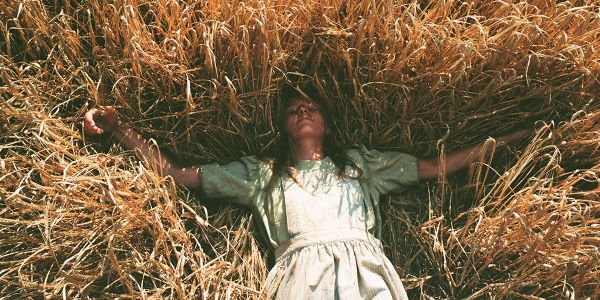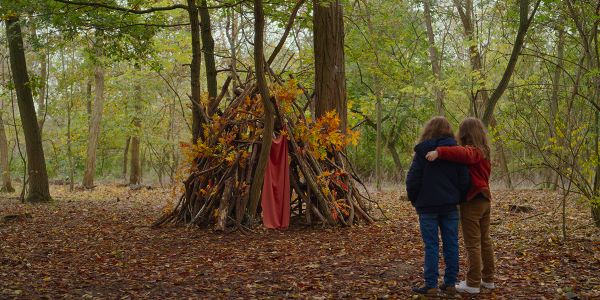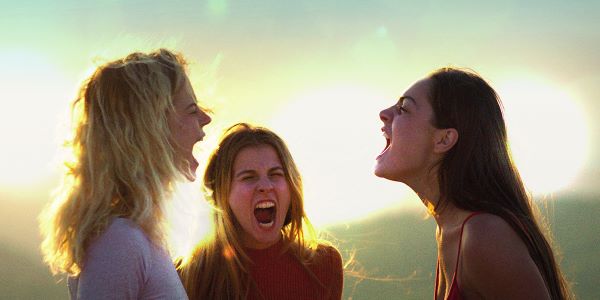
This year’s edition of the Toronto International Film Festival reminded this reviewer that the annual event really is about the movies. Unlike last year, which was all virtual, TIFF produced a hybrid edition with most of its lineup of roughly 100 feature films available digitally for Canadian viewers within a certain time span, as well as offering screenings in downtown Toronto and in drive-ins. This model will hopefully be continued and adopted by more festivals to make their films, which sometimes can be hard to find afterwards, more accessible regionally or nationally, if/when pandemic restrictions are lifted.
Still, to watch films remotely away from the scuttlebutt of fellow filmgoers and removed from any type of audience interaction is a bit discombobulating and isolating. So, in the meantime, the festival has been reduced to its purest form, as a celebration of new works from around the world, apart from parties and the buzz of what are the hottest tickets.
The screenings began on a delicate note with the world premiere of the Danish film As in Heaven, which takes on, according to debut director Tea Lindeburg, a little-known 1888 novel based on the author Marie Bregendahl’s childhood. Set in the same era as the book, it’s a coming-to-terms-with-life tale, where the promises of youth slam against the realities of what life has in store. It’s bleak but bearable, most notably because of the attention-getting, soulful performance by lead actor Flora Ofelia Hofmann Lindahl. She conveys reams of dialogue simply through her eyes alone.
It begins with Lise (Lindahl) in a golden wheat field, blowing at a dandelion and watching the seeds scatter into the wind and swirl about to spiral and form a dark red storm cloud, which begins raining down blood on her arms and face, drip by drip. This is no ordinary period piece—it’s ethereal and earthy. At 14, Lise is about to leave the family farm to go away to school, a move that her mother (who is to give birth to her fifth child any day now) encourages, but her gruff father condemns. She has her whole life, with all of its possibilities, in front her, which might include a courtship with the stable boy Jens Peters (Albert Rudbeck Lindhardt).
Filmed with natural light and centered on a cast directed to a high level of detail, the production bears the hallmark of many Danish period films. One could think of several, such as the recent Before the Frost (2018, also at TIFF) and going back to 1988’s Pelle the Conqueror. The handheld camera can barely keep up with Lise and the rambunctious antics of her siblings and cousins roughhousing and making do while they are alone in their grandmother’s cottage as their mother goes into labor.
However, after darkness falls and the wind kicks up, a storm radically alters the mood as the mother has a difficult delivery, losing a lot of blood, while the stern mother-in-law forbids the sending for the doctor. Here the camera becomes a voyeur, from the perspective of Lise and a cousin who espy a realistic, decibel-shattering childbirth sequence. Throughout, the director envelopes the audience in the intimacies of this financially stable but not prosperous family. The stark ending is not unlike the unsentimental and harsh slap in the face of Thomas Hardy’s Southwest England-set novels written in the same time period.

Another delicate, though far gentler, film screened in the opening days of the festival, Petite Maman, the latest by writer/director Céline Sciamma, who offers a work subtler than her Portrait of a Lady on Fire. She veers away from that film’s hothouse atmosphere and leans more toward the intimate and perceptive work of her earlier movies, such as Water Lilies (2007) and Tomboy (2011). She centers her new film on a remarkable cast of juvenile actors who are completely uninhibited. When the kids are at play, their interactions come across as improvised, as though they are running off with the story line and having a ball doing so.
Ostensibly, she has come up with a simple premise. A mother, Marion (Nina Meurisse), and her eight-year-old daughter, Nelly (Joséphine Sanz), are cleaning out the home of Marion’s recently departed mother, and where Marion grew up. Like As in Heaven, the behavior of the family has a built-in familiarity and routine. Nelly feeds her mom a snack and offers her a juice box while Marion drives, though she never lets her eyes off the road—talk about multitasking. There are hints that it’s unusual for the duo to spend so much time together: when mom asks her daughter why she has so many questions at bedtime, the tot retorts that’s the only time she sees her.
Then the following morning, Marion has disappeared, without explanation, while Nelly’s father has stayed behind. Left to her wiles, Nelly’s far from lonely. She ventures out to the autumnal woods and meets a playmate repairing the old tree fort that her mother had made decades ago, and viewers might have a startled reaction and ask, “Am I seeing double?” “Is there some sort of special effect going on here?” Nelly has met her doppelgänger, who goes by the name of Marion. The clues to the new friend’s identity add up to an unexpected sort of reconciliation.
The novella-like movie offers a refreshing change of pace when so many new films are coming out with a self-important running time of more than two hours. At 71 minutes, Sciamma’s film has a novel premise (to reveal more would rob viewers of what enfolds) and tells it in just the right amount of time. It’s a story for the whole family, which you rarely see these days, apart from animated movies. Neon will release it in the United States.

And speaking of Portrait of a Lady on Fire, actress Luàna Bajrami, who played Adèle Haenel’s maid in that drama, wrote and directed, at age 20, her debut feature, The Hill Where Lionesses Roar, filmed in the countryside of her native Kosovo. This is at least the second film from that country that has played the North American festival circuit this year, following the more straightforward Hive, where a widow from the 1990s’ Balkan conflict fights the town gossips and the patriarchy. (Is Kosovo now becoming the new art-house destination, replacing Romania?)
A trio of young women, around age 20 or so, have been waiting for two years to hear if they have been accepted to university, the ticket for their way out of their hick town where they spend their days and nights hanging out together, aloof from their peers. One lives with a creepy and handsy uncle, while another sidekick lives with a draconian father, who reeks of pervy motivations. Yet not all of the men are portrayed with a broad stroke. One of the young women has a sweet natured and accommodating boyfriend. Bajrami appears as a Parisian returning to her grandmother’s hometown, who views the women, and the village, as an outsider, not really appreciating the advantages that she has in France and over-romanticizing the lives of her new (but short term) friends.
What sets the film apart from other examinations of young women confronting narrow-mindedness is that the three fight back, becoming disruptors, as cocky as their male and criminally-minded peers, which doesn’t necessarily mean they take the wisest road. Though at times the young cast is directed to play for the camera, like when the women imagine they are participating in a photo shoot, the camaraderie is convincing, like they have grown up together all their lives. The film also remains vibrant when the friends just hang out, sitting on the hood of a car by the side of the road.
















Leave A Comment